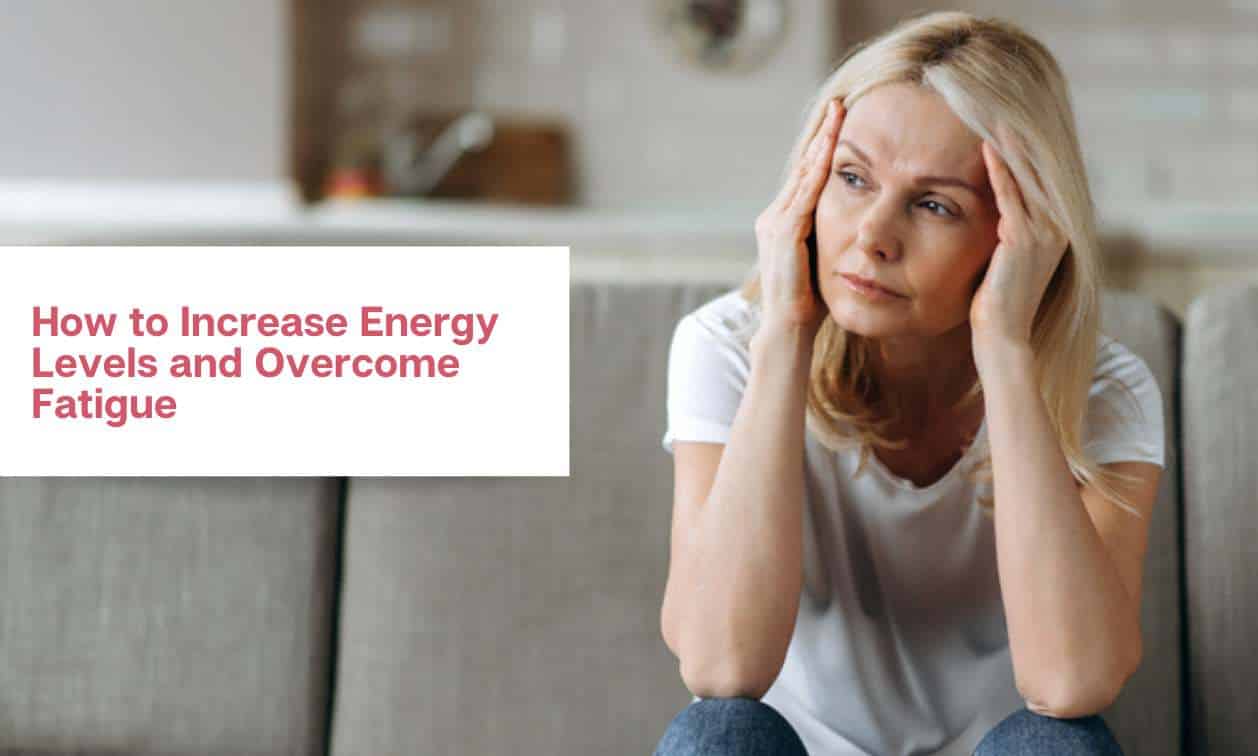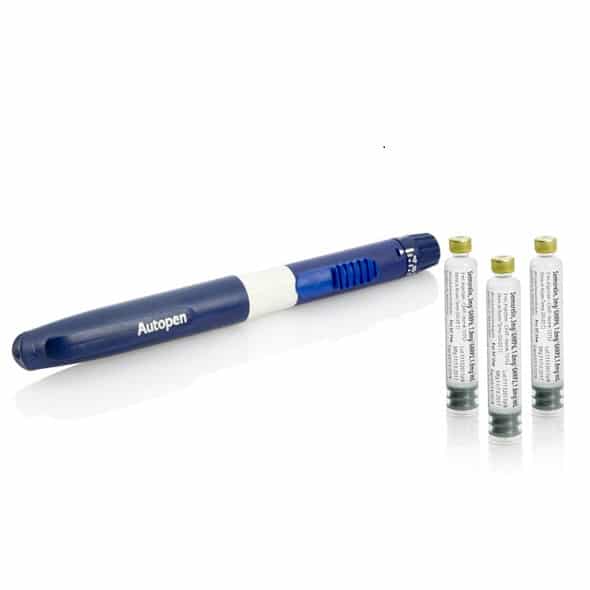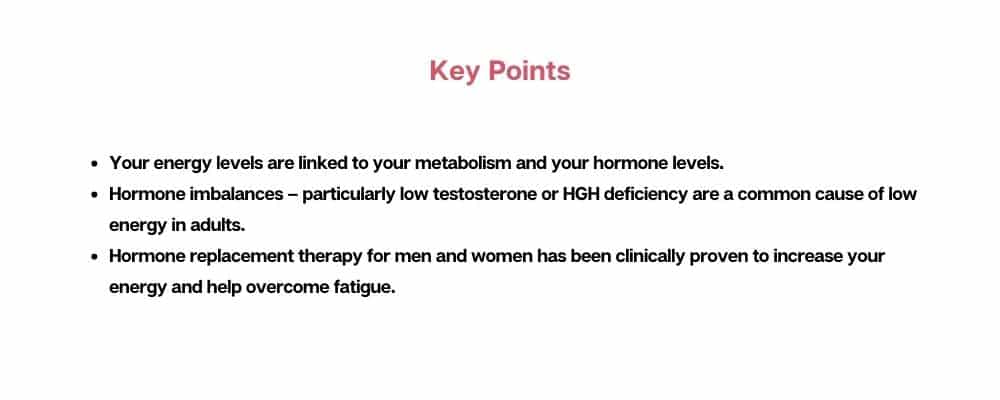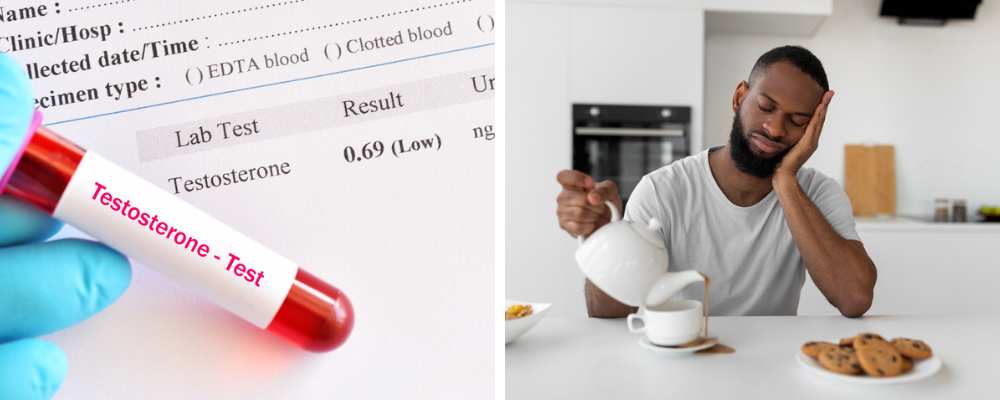
How to Increase Energy Levels and Overcome Fatigue
Table of Contents
Hormone replacement therapy in men and women has been clinically proven to increase energy, strength, and stamina.
You may think that feeling weak and tired is just a natural part of aging. It is not. If you are over the age of 40 and feel chronic fatigue or that you just do not have the energy to enjoy life, declining hormones may be the reason.
Two hormones that are critical to strength, energy, and vitality – human growth hormone and testosterone – both decline as men and women age.
While there can be several reasons for lack of energy in older adults, from disturbed sleep to poor diet — age-related hormone loss is often the culprit. The good news is that when your lack of energy is confirmed to be due to low testosterone or low HGH, hormone replacement therapy for men and women has been shown to improve your energy levels.
What Causes Low Energy Levels in Adults?
Your energy is primarily related to your metabolism – or how well your body converts the fats and sugars in the foods you eat into energy for your cells. You have probably heard of people with a “low metabolism” and how a low metabolism leads to weight gain, chronic fatigue, and other health issues.
There are two key hormones related to metabolism – testosterone and human growth hormone. As men and women age, the level of both of these hormones, which both play a functional role in energy and metabolism, drop. The depletion of these and other hormones can cause hormone imbalances in both men and women that often manifest in weakness, fatigue, and a lack of energy.
Age-related loss of testosterone and HGH impacts energy in several ways. Both testosterone and HGH are necessary for restful sleep. When either of these hormone levels are low, disturbed sleep is the result. Interestingly enough, your body produces most of your testosterone and HGH during your period of deepest sleep. So if you are suffering from insomnia, you are failing to produce enough of both hormones, and this becomes a kind of vicious cycle of poor sleep leading to hormone imbalance and low hormones leading to poor sleep.
Beyond their impact on sleep, HGH and testosterone impact your energy levels in other ways. Age-related hormone loss negatively impacts metabolism. As metabolism slows, the conversion of the food you eat into energy decreases. Weakness, weight gain, and chronic fatigue are the result.
As HGH and testosterone decline, your ability to build lean muscle also declines. Muscle burns calories and boosts metabolism even when at rest. Lack of lean muscle also contributes to chronic fatigue and lack of energy.
Furthermore, low testosterone in men has been linked to anemia, which is a condition when the body is unable to make enough healthy red blood cells. Less red blood cells decrease the delivery of oxygen to your organs, tissues, and cells which also results in tiredness and decreased energy levels.
What Are the Best Ways to Increase Energy Levels in Adults?
As stated earlier, there can be many reasons for a lack of energy and chronic fatigue in adults. Since low energy and chronic fatigue can be a sign of hormone imbalance or other medical conditions, long periods of low energy or lack of energy should not go unchecked. You should see your doctor if you have been suffering from chronic fatigue for more than a few months. There are some actions you can take to try to boost your energy level.
- Get more sleep – Obviously, one of the reasons for daytime fatigue could be poor sleep. There are many things that can cause disturbed sleep, from hormone imbalances to sleep apnea. Long-term insomnia may have a medical cause and require a sleep study and medical treatment. Short-term ways to improve sleep include not eating before bedtime, reducing your exposure to screens before bed, and trying a natural sleep-aid such as melatonin.
- Reduce stress – Stress and “burnout” can impact your energy level in several ways. Stress leads to anxiety and poor sleep. More importantly, stress raises your cortisol level. Cortisol is a testosterone antagonist. Meaning that the higher your cortisol level, the lower your testosterone; as we have already discussed, low testosterone causes low energy in a number of ways. You can help overcome stress-related fatigue by taking action to reduce stress, such as practicing yoga, meditation, rhythmic breathing Tai-Chi or other stress-reduction techniques.
- Exercise – Getting adequate exercise can improve your energy levels in several ways. Working out leads to more sound sleep. It improves oxygen flow through your bloodstream, and exercise raises the levels of energy-related hormones such as HGH and testosterone. Exercising also increases your dopamine levels, which helps elevate mood and combat stress.
- Quit smoking – Smoking negatively impacts energy by decreasing blood flow. It also can cause “jitters” or over-stimulation leading to poor sleep. There are several good reasons not to smoke, and improving energy levels and overcoming fatigue is one of them.
- Limit alcohol – Similarly, to smoking cessation, reducing your consumption of alcohol has several positive health impacts, not the least of which is improved energy levels.
- Stay hydrated – Not drinking enough water or being in a state of chronic dehydration is a common cause of fatigue in adults. Check this hydration calculator to see if you are drinking enough.
- Check your hormone levels – If you take all of the above actions and are still feeling weak and chronically tired, there is a very good chance that a hormone imbalance is to blame. Make an appointment to have your hormone levels checked.
Hormone Replacement Therapy Can Help Increase Energy and Overcome Fatigue
Hormone replacement therapy (HRT) for men and women has been clinically proven to increase energy and combat fatigue in both men and women. In fact, one of the first benefits our HRT patients say they notice in the very first weeks of their program is increased strength and energy.
After proper medical evaluation, if your chronic fatigue and low energy is found to be related to hormone imbalance, hormone replacement therapy via testosterone injections, HGH injections, or both has been shown to significantly improve energy.
As we age, our metabolism slows. This is largely due to the loss of HGH and testosterone that occurs as men and women grow older. As your metabolism slows down, so does your cell’s ability to convert calories into energy. As metabolism becomes less and less efficient, you begin to feel weak, tired, and fatigued all of the time. You put on weight, which leads to more issues with fatigue and can lead to other energy-robbing medical conditions such as diabetes and cardiovascular disease.
Hormone replacement therapy will increase your energy and help you to overcome fatigue by raising your metabolism. HRT does this in a number of ways. HGH and testosterone improve your ability to burn fat and build more lean muscle. Muscle increases your metabolism, even while at rest.
By boosting your metabolism, hormone replacement also increases your exercise capacity. That lets you:
- Exercise more.
- Get more out of each workout.
- Burn more fat.
- Build more muscle, and even further increase your energy and stamina.
Beyond raising your energy levels by increasing your metabolism and building muscle, HRT also has been clinically proven to improve sleep. Poor sleep and sleep apnea leading to daytime fatigue are common, particularly in men with age-related testosterone deficiency.

Conclusion
There can be several reasons for chronic fatigue and lack of energy in adults. You can make some lifestyle changes that may increase your energy and help combat chronic fatigue. Many of these changes – such as getting more exercise, reducing stress, and quitting smoking – are good ideas, regardless of your energy levels.
Quite often, in adults over 40, the reason for low energy and fatigue is hormone-related. In such cases, hormone replacement therapies for men and women, including but not limited to testosterone replacement and growth hormone therapy, have been shown to increase energy and help many of our patients overcome fatigue.


